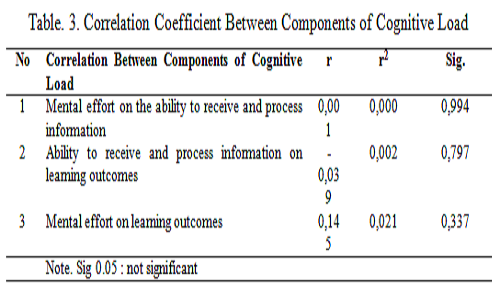Cognitive Load Lecture on Diversity and Classification of Vertebrates Through Moodle-Based Online Learning
DOI:
https://doi.org/10.31258/jes.6.1.p.107-115Keywords:
Cognitive Load, Moodle-Based Online Learning, Vertebrate Diversity, ClassificationAbstract
The addition of asynchronous learning hours in e-learning can cause students to have to understand large amounts of material. So that it can be a cognitive burden for students. The purpose of this study was to describe the cognitive load of students during online learning in the subject of vertebrate diversity and classification, especially on the structure of Pisces and amphibians. The research method used in this study was quantitative descriptive by examining the ability to receive and process information, mental effort and the learning outcomes of 46 students of the Biology Education Study Program at Pakuan University. The instrument used in the study was to measure the ability to receive and process information through a test in the form of a task complexity worsheet. Mental effort was measured through a questionnaire (Likert scale) with a range of 1-5. Learning outcomes were measured in the form of an essay test. The results obtained that the learning activities carried out have the characteristics of a high cognitive load component. The high cognitive load obtained by students is seen from the high mental effort and the high intrinsic load possessed by students, so that it has an impact on the learning outcomes obtained.
Downloads

Published
Issue
Section
License

This work is licensed under a Creative Commons Attribution-NonCommercial-ShareAlike 4.0 International License.











